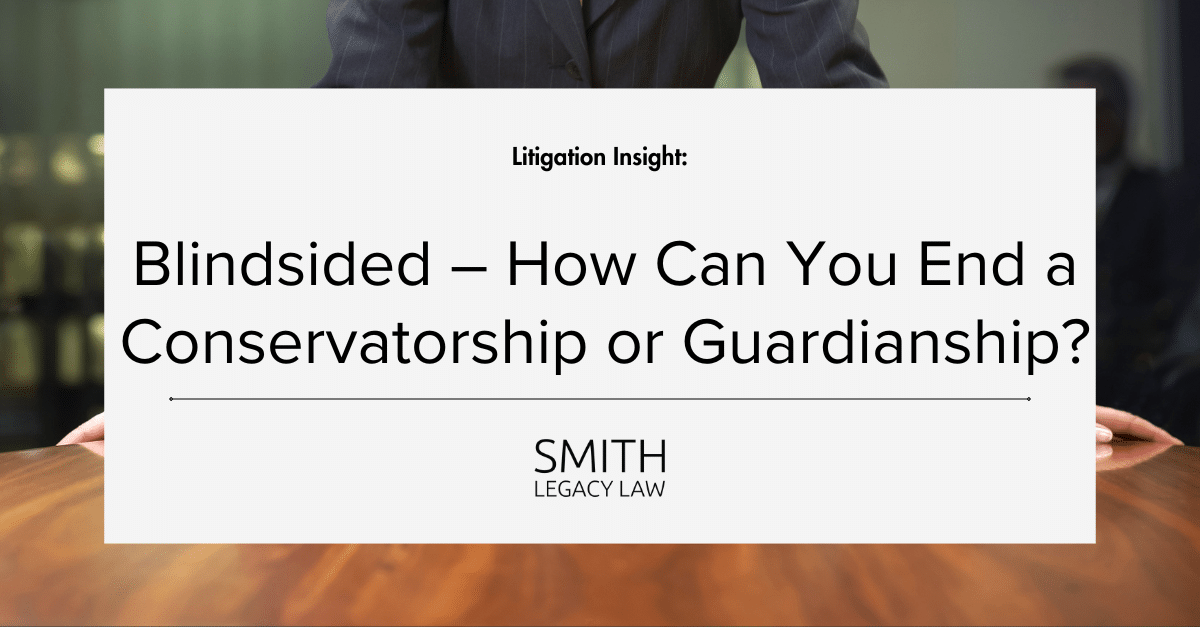Michael Oher, a former professional football player, and the main character depicted in the film The Blind Side, has been in the news regarding a conservatorship that was created when he was in high school. Oher states that he believed, and the story told in the movie portrays this, that he was adopted by the Tuohy family, with whom he lived while playing high school football. In fact, the Tuohy’s never formally adopted Oher; instead, they became his conservators, also called guardians in some states.
What Is A Conservator?
A conservator/guardian is appointed by a court to make decisions for an individual (“conservatee”) who the court believes cannot take care of themselves. Frequently, this is done in the case of someone with dementia or some type of disability that makes them unable to care for themselves.
The conservator can be appointed over the “person” meaning the conservator is empowered to make decisions for the conservatee regarding medical care, living arrangements, social interactions, and other personal matters. Where assistance is needed with financial matters, a conservator must be appointed over the “property” specifically allowing the conservator to have financial control over the conservatee’s assets and income and the power to pay bills.
Typically, the appointing court will only grant powers to the conservator that constitute the “least restrictive means” necessary so as to protect the individual autonomy of the conservatee.
How Long Does a Conservatorship Last?
As the Oher case demonstrates, conservatorship appointments are of an indefinite duration. This can become problematic when there is a younger, physically healthy person subject to a conservatorship, or when someone who was initially in need of a conservator recovers the ability to manage their affairs as occurred in the Britney Spears matter, another high-profile conservatorship which was recently terminated.
How Can a Conservatorship Be Terminated?
Conservators are appointed by the court. As such, the relationship can only be terminated by a court. This is true even if the conservator and the conservatee are in agreement about ending the conservatorship. If both parties agree to terminate the conservatorship, the process should be relatively straightforward, but if they are not in agreement, a contested court proceeding will likely occur.
In deciding whether to terminate a conservatorship, the court will want evidence that the person under the conservatorship is now capable of managing their own affairs and making their own decisions. This can include testimony from treating physicians, caretakers, or others knowledgeable about the condition and competency of the conservatee.
The court should also be made aware of alternative arrangements that might suffice to address any concerns about the conservatee’s fitness to make decisions, but which are less restrictive than a conservatorship. This may include the use of a power of attorney, appointment of a health care agent and other advance directives, or a supported decision-making arrangement which can be informal or contractual. These alternatives may also be considered before seeking conservatorship initially.
The stakes are high in conservatorship proceedings since restrictions on a person’s autonomy are at issue. If you are a conservator, conservatee, or interested party, contact our firm for assistance. We have extensive experience with these matters and can guide you through the process of obtaining, contesting, or ending a conservatorship.
